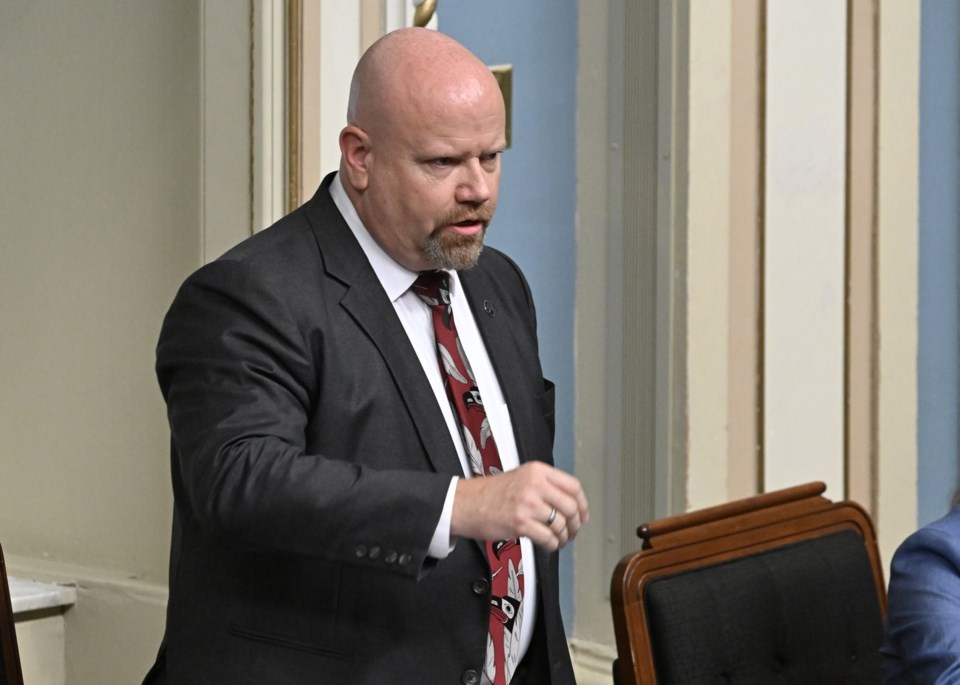QUEBEC CITY ŌĆö Quebec's minister responsible for relations with First Nations and Inuit says northern communities can't opt out of paying their electricity bills.
Ian Lafreni├©re was reacting to a Radio-sa╣·╝╩┤½├Į report that found that members of some Indigenous communities hadn't paid their electricity for years, resulting in a $250-million bill the utility is reportedly unsure how to collect.
The report said the 15 or so communities who are behind on payment are mostly Cree and Innu nations in parts of the province where Hydro-Qu├®bec operates dams or is planning wind farms.
Hydro-Qu├®bec confirmed in a statement that it had decided not to cut service to any First Nation or Inuit communities as part of a wider reflection on "economic reconciliation."
Lafreni├©re told the legislature that there are communities who have had bad experiences with Hydro-Qu├®bec in the past, but he says refusing to pay their bills is the wrong way to send that message.
He says he wants to work with both sides to negotiate a resolution.
"We cannot take justice into our own hands," he said in Quebec City, noting that the majority of Indigenous hydro clients pay their bills.
Both the Parti Qu├®b├®cois and the Quebec Liberal Party told the legislature the situation could not be allowed to go on.
PQ Leader Paul St-Pierre Plamondon said there doesn't seem to be equity between hydro customers.
"What we're saying is that there are people who pay their bills, and if they don't there are consequences," he said. "And there are others who don't need to pay their bills ŌĆ” I don't see how it will work in terms of equity."
Qu├®bec solidaire's Gabriel Nadeau-Dubois called for dialogue, saying that Hydro-Qu├®bec was created "as if Indigenous people didn't exist."
"The path of dialogue and negotiation is to be favoured so that we recognize the rights of all First Nations and pave the way for better relations in the future," he said.
The Assembly of First Nations Quebec-Labrador was not immediately available for comment.
This report by The Canadian Press was first published Sept. 24, 2024.
Thomas Laberge, The Canadian Press



